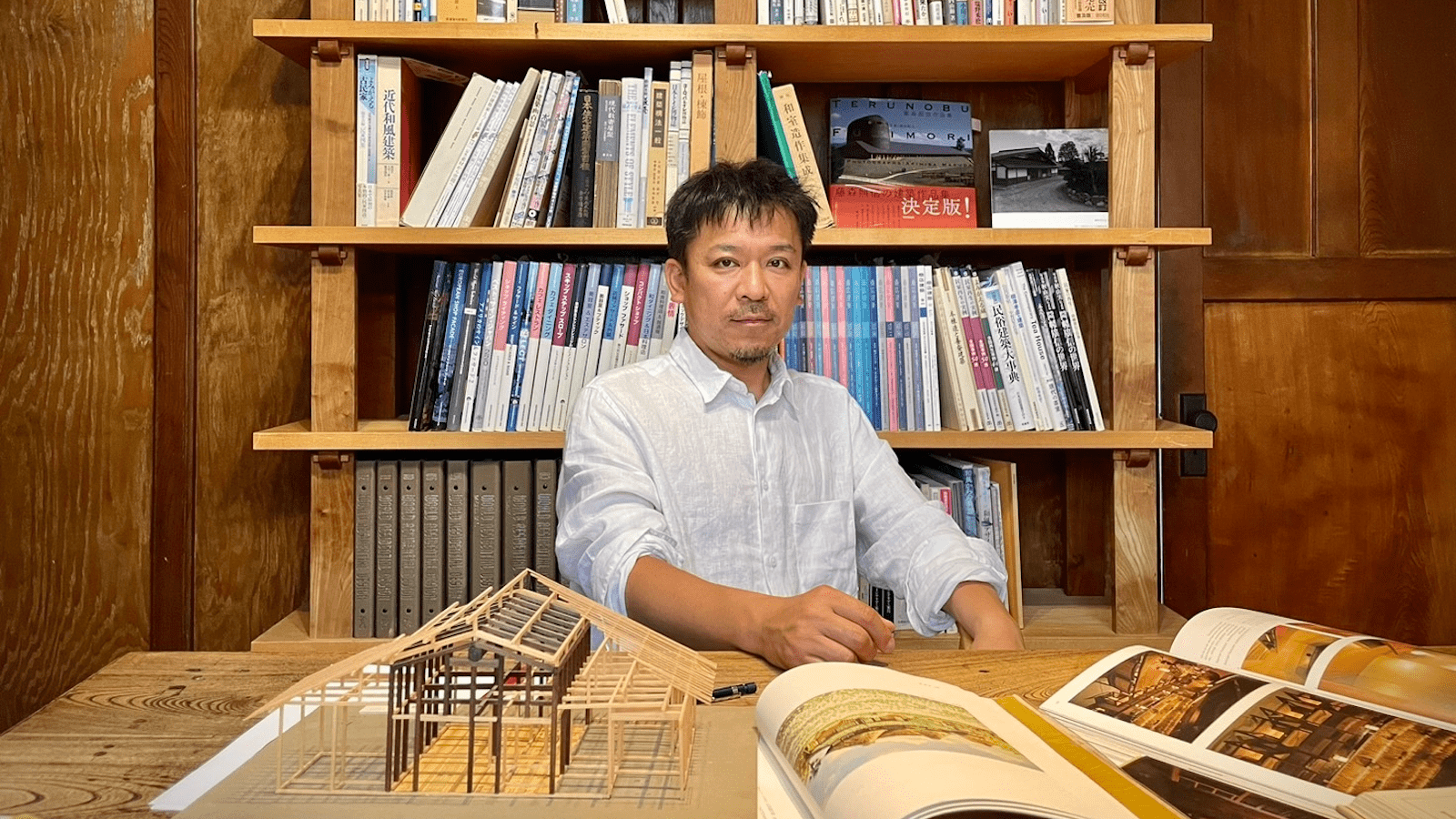Design
Enjoy the elegant atmosphere created by the rare zelkova beams and pillars and timeless furniture.
Relax in luxury as you listen to the cicadas in the summer or gaze at the crackling flames of the wood stove in the winter.

The interior is so bright, you wouldn’t think you were in an old farmhouse,
and thorough insulation has yielded a warm and inviting atmosphere.
Although Sen is in a residential district, its spacious grounds and unique location on top of a river terrace give the illusion that you are floating in the forest when you are inside looking out. During the renovation, we created a private space by ensuring that views from the surrounding area were all blocked. We also installed large windows to provide a seamless connection to the landscape. Despite being an old farmhouse, the rooms are brightly lit, allowing in as much natural light as possible, and guests can feel at one with nature. The dining room flooring is old wood that had been sitting unused in a warehouse for decades. The sliding doors and shoji screens are papered with Oguni washi, a traditional Japanese paper that has been produced in Niigata Prefecture for more than 300 years.
Yoshiki Kumagai of Y Architects, an expert in renovating old houses, oversaw the architectural design of Sen.
Yoshiki KumagaiY Architects, Inc.

Yoshiki Kumagai was born in Matsumoto City, Nagano Prefecture in 1973, and he earned his degree from the Tokyo University of Science. He has been running his own firm since 2008. In addition to designing and producing contemporary architecture, he has been involved in the restoration, relocation, and production of many traditional old houses unique to various regions throughout Japan. Y Architects renovates machiya townhouses and traditional warehouses as part of its restoration business, and it strives to preserve Japan’s unique townscapes.
Toru Iwasa of Jiyujin oversaw the basic design and creative direction of Sen.
Toru Iwasa

Toru Iwasa was born in Tokyo in 1967. He started Jiyujin as a design firm in 1989 while still enrolled at Musashino Art University, later assuming the post of editor after launching the lifestyle magazine Jiyujin in 2000. He oversaw the creative direction of Satoyama Jujo, which opened in 2014 in the Osawayama Onsen district of Niigata Prefecture and won the Good Design Award Best 100 the same year. He also oversees the planning, direction, and operational support for other hotels and restaurants outside of the Jiyujin group. He currently serves as a Visiting Professor at Tama Art University and Musashino Art University. Since 2021, he has served as a judge for the Good Design Award.
[Major Awards]
Good Design Award Best 100 (for Satoyama Jujo) (2014); Forbes Japan “55 Local Innovators” (2017); Good Design Award Best 100 (for Hakone Honbako) (2019); Special Prize, Cool Japan Matching Award 2019 (for Hotel Koo Otsu Hyakucho) (2020)



